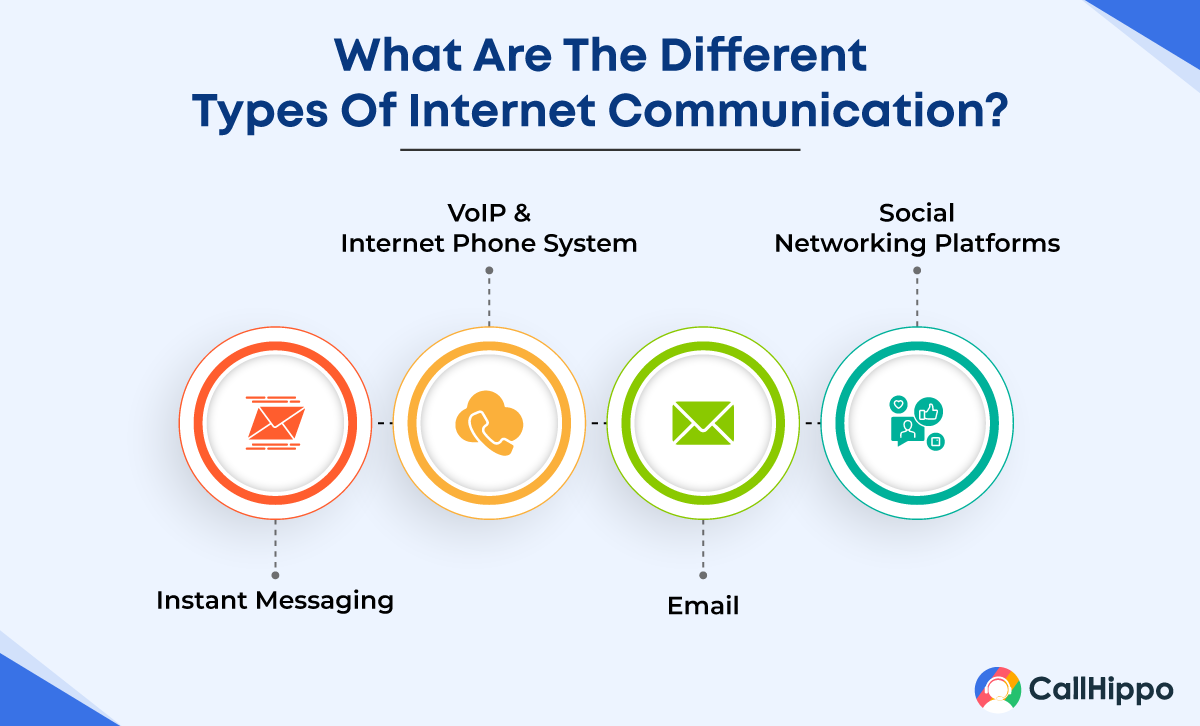The Impact of the Internet on Society
The internet has had a profound impact on society in the last few decades. It has changed the way we communicate, learn, shop, and even work. Here are some of the most significant impacts of the internet:
- Communication: The internet has made it possible for people to connect with each other from all over the world. This has led to a more interconnected and globalized society. Social media platforms like Facebook, Twitter, and Instagram have made it easier for people to stay in touch with friends and family, and to build new relationships.

- Education: The internet has made it possible for people to access educational resources from all over the world. This has led to a more democratized education system, where anyone can learn regardless of their location or socioeconomic status. Online courses, tutorials, and other resources have made it easier for people to learn new skills and advance their careers.

- Shopping: The internet has made it possible for people to shop from the comfort of their own homes. This has led to a decline in traditional brick-and-mortar stores, and has changed the way we consume goods and services. Online shopping has also made it easier for people to compare prices and find the best deals.

- Work: The internet has made it possible for people to work from anywhere in the world. This has led to the rise of the "gig economy", where people can work on short-term contracts or projects. The internet has also made it easier for businesses to collaborate with each other and to reach a global market.

- Entertainment: The internet has given us access to a vast amount of entertainment content, from movies and TV shows to music and games. We can now watch our favorite shows on demand, and listen to music from any artist in the world. The internet has also made it possible for people to create and share their own content, giving them a platform to express themselves and connect with others.
 The internet has also had some negative impacts on society. These include:
The internet has also had some negative impacts on society. These include:
- Privacy: The internet has made it easier for people to track our online activity. This has raised concerns about our privacy and security.
- Cyberbullying: The internet has made it easier for people to bully others anonymously. This has led to an increase in cyberbullying cases.
- Fake news: The internet has made it easier for people to spread misinformation. This has led to a decline in trust in traditional media sources.
- Addiction: The internet can be addictive, and can lead to problems such as social isolation and decreased productivity.
Overall, the internet has had a profound impact on society. It has made our lives more convenient and connected, but it has also raised some challenges that we need to address. As we continue to use the internet, it is important to be aware of both the positive and negative impacts, and to use it responsibly.
In addition to the impacts mentioned above, the internet has also had a significant impact on the economy, politics, and culture. It has created new jobs and businesses, and has changed the way we vote and participate in government. The internet has also made it easier for people to access information and ideas from all over the world, which has led to a more globalized and interconnected society.
The internet is a powerful tool that can be used for good or bad. It is up to us to use it responsibly and to make sure that it benefits all of society.
The internet is constantly evolving, and it is difficult to predict what the future holds. However, here are some trends that are likely to shape the internet in the coming years:
- The rise of the metaverse: The metaverse is a virtual world that is being created using technologies such as virtual reality and augmented reality. It is envisioned as a place where people can work, play, and socialize in a digital environment. The metaverse is still in its early stages, but it has the potential to revolutionize the way we interact with the internet.
- The growth of artificial intelligence: Artificial intelligence (AI) is already being used in a variety of ways on the internet, from powering search engines to recommending products. In the future, AI is likely to play an even larger role in the internet, automating tasks, generating content, and providing personalized experiences.
- The increasing importance of security and privacy: As the internet becomes more interconnected, the importance of security and privacy will only grow. Governments and businesses will need to find ways to protect their data from cyberattacks, and individuals will need to be more careful about what information they share online.
- The spread of broadband internet: Broadband internet is becoming increasingly available around the world, which will allow people to access the internet at faster speeds and with more reliability. This will open up new possibilities for the internet, such as streaming high-definition video and playing online games.
- The development of new technologies: There are many new technologies that are still in their early stages, but have the potential to revolutionize the internet. These include quantum computing, blockchain, and 5G. These technologies could make the internet faster, more secure, and more decentralized.
The future of the internet is uncertain, but it is clear that it is going to continue to evolve and change. The trends mentioned above are just a few of the things that we can expect to see in the years to come.



































